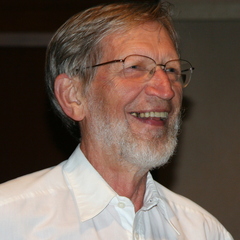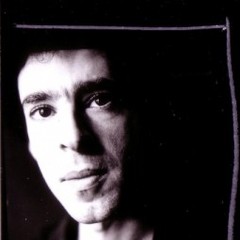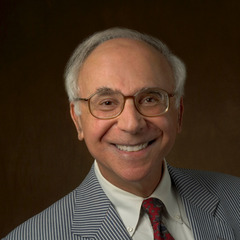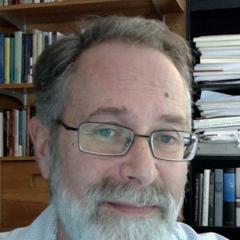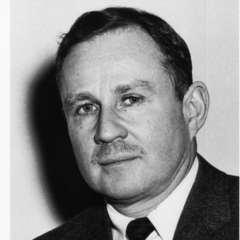Ernest Sosa quotes
-
“If a shot aimed at aptness succeeds aptly, it is then fully apt, since it is not only apt but also aptly apt. But the full aptness of such an attempt is entirely compatible with its being a horrible murder, if the "hunter" is an assassin and the prey his victim. That hunter's shot may still be outstandingly, fully apt, if it manifests the agent's competence in both archery dexterity and shot selection.”
-- Ernest SosaSource : Source: www.3ammagazine.com
-
“It is bad to want something that not even God could attain, especially when the impossibility becomes obvious.”
-- Ernest SosaSource : Source: www.3ammagazine.com
-
“When the risk of failure is too high, the right choice is to forbear.”
-- Ernest SosaSource : Source: www.3ammagazine.com
-
“The success of an archery shot may bring food to the hunter's starving family, or may constitute a horrible murder. But these outcomes are irrelevant to the assessment of that shot as a hunter-archery shot, as an attempt to hit prey without running excessive risk of failure.”
-- Ernest SosaSource : Source: www.3ammagazine.com
-
-
“Flourishing is properly the main human end, and flourishing is activity of soul that succeeds in accord with virtue.”
-- Ernest SosaSource : Source: www.3ammagazine.com
-
“Philosophers need not much use the word 'intuition' or the concept of intuition, except when they happen to be working on the epistemology of the a priori.”
-- Ernest SosaSource : Source: www.3ammagazine.com
-
“Descartes's epistemology is a special case of Aristotle's virtue ethics.”
-- Ernest SosaSource : Source: www.3ammagazine.com
-
“The data on which philosophical theorizing is based are rather the intuited contents themselves, concerning the various thought experiments. At least that is so outside the epistemology of the a priori.”
-- Ernest Sosa -
-
“I am mainly concerned with unqualified knowledge, by contrast with the varieties of expert knowledge: scientific knowledge of various sorts, legal knowledge, medically expert knowledge, and so on.”
-- Ernest SosaSource : Source: www.3ammagazine.com
-
“Compare the credit for a football touchdown, which might be shared by the receiver not only with the quarterback, but also with the linesmen who make crucial protective plays, etc. The success of the touchdown play depends on the receiver, it is true; but in a particular case it might depend far more on the work of others.”
-- Ernest SosaSource : Source: www.3ammagazine.com
-
“A successful account enables us to understand human knowledge in general.”
-- Ernest SosaSource : Source: www.3ammagazine.com
-
“In competitive archery, risk assessment has minimal bearing on quality of performance, since the archer has so little choice over shot selection. By contrast, in a hunt, shots vary in quality according to how well selected they may be.”
-- Ernest Sosa -
-
“Epistemic competence might be posterior to knowledge conceptually, however, while still prior metaphysically.”
-- Ernest SosaSource : Source: www.3ammagazine.com
-
“Suppose we wonder whether we should trust the deliverances of our basic epistemic competences. If those are indeed our basic competences, then in order properly to satisfy our curiosity we will inevitably rely on one or more of them. So, either we squelch our curiosity or we will have to fall into the circularity or regress to which the skeptic objects.”
-- Ernest SosaSource : Source: www.3ammagazine.com
-
“There isn't a formal definition of success.”
-- Ernest SosaSource : Source: www.3ammagazine.com
#Definitions Quotes #Formal Quotes #Definition Of Success Quotes
-
“Attempts are found in domains of human performance, such as sports, games, artistic domains, professional domains like medicine and the law, and so on. These feature distinctive aims, and corresponding competences. Archery, with its distinctive arrows and targets, divides into subdomains. Thus, competitive archery differs importantly from archery hunting.”
-- Ernest Sosa -
-
“Normal adults can doodle, amble, and drift with no need to assess risk, since there is normally no risk at all. Jazz improvisation seems less subject to standards of risk than surgery, and less than much formal athletic performance, as in a tennis match.”
-- Ernest SosaSource : Source: www.3ammagazine.com
-
“A hunter archer can also be out to shock by taking crazy shots. What makes his shots "crazy" is set by excessive risk, judged by hunting-archery standards, which would tend to draw agreement from knowledgeable observers.”
-- Ernest SosaSource : Source: www.3ammagazine.com
-
“There is no need for the scientist to go into whether an observation was made, nor into the who, what, when, or where. The data on which scientific theorizing is based are rather the propositional contents of the instrument readings recorded, or the facts detected thereby.”
-- Ernest SosaSource : Source: www.3ammagazine.com
-
“In my view (animal) knowledge is apt belief, where not only the belief (its existence and content) but also its correctness is creditable to the subject's competence.”
-- Ernest Sosa -
-
“Philosophers do need to have intuitions of various specific sorts: ethical, metaphysical, etc., depending on their targeted subject matter. And they must make intuition reports, as they record the contents of their intuitions. But they need not go into whether an intuition has been enjoyed.”
-- Ernest SosaSource : Source: www.3ammagazine.com
-
“You attain aptness by judging while in good shape and in a good situation (good light, good distance, etc.), through the exercise of good barn-sorting epistemic competence.”
-- Ernest SosaSource : Source: www.3ammagazine.com
-
“The risk pertinent to a particular attempt (and to its evaluation as an attempt of its sort) is the risk that the agent will fail to attain the end constitutive of that attempt. This risk of failure is coordinate with how likely or unlikely it may be that the agent will then succeed.”
-- Ernest SosaSource : Source: www.3ammagazine.com
-
“In arriving at the relevant theory about the specifics of our faculty of vision we will presumably use our eyes to gather relevant data. Based on such data we come to know about the optic nerve, the structure of our eyes, the rods and cones, etc., so as to explain how it is that vision gives us reliable access to the shapes and colors of objects around us. In reliably arriving at that theory we thus exercise the very faculty whose reliability is explained by the theory. There is no vice in this sort of circularity.”
-- Ernest SosaSource : Source: www.3ammagazine.com
-
-
“There's not much to be done about the impossibility. One must instead get rid of the desire.”
-- Ernest SosaSource : Source: www.3ammagazine.com
-
“Success is better than failure; an attempt is a better attempt, it is better as an attempt, if competent than if incompetent; and it is better to succeed through competence - aptly - than through sheer luck.”
-- Ernest Sosa -
“When we speak of ordinary unqualified knowledge, my thought is that we are implicitly relativizing to the standards imposed by our evolution-derived humanity. These are standards that determine when we consider it appropriate to store beliefs just as a human being, rather than in one's capacity as an expert of one or another sort. Such stored beliefs are to be available for later use in one's own thought or in testimony to others.”
-- Ernest SosaSource : Source: www.3ammagazine.com
-
“Knowledge in my view is a form of action. It involves endeavors to get it right, and more broadly it concerns aimings, which can be functional rather than intentional.”
-- Ernest Sosa -
-
“We need some standard that will determine how likely a belief is to be true given just that it is stored in one of us, including strangers that one can ask for directions, and with whom one might collaborate.”
-- Ernest SosaSource : Source: www.3ammagazine.com
-
“Any defense of common sense must allow that it is revisable.”
-- Ernest SosaSource : Source: www.3ammagazine.com
-
“Ultimately, my more significant agreement is with a virtue tradition that features Aristotle and Descartes.”
-- Ernest Sosa -
“Through our perceptual systems, we represent our surroundings, aiming to do so accurately, where the aiming is functional or teleological, rather than intentional. And the same goes for our functional beliefs. Through our judgments, however, we do intentionally, even consciously, attempt to get it right.”
-- Ernest Sosa -
-
“It is possible to produce something that is grammatical either by chance or under the supervision of another. To be proficient in grammar, then, one must both produce what is grammatical and produce it grammatically, that is, in accord with knowledge of grammar in oneself.”
-- Ernest Sosa -
“Lowered reliability obviously yields a lesser competence. But lowered breadth does so as well.”
-- Ernest SosaSource : Source: www.3ammagazine.com
-
“Since human good is what humans ought to pursue, the pursuit of interest to Aristotle is then such activity of soul, that which constitutes human good, namely activity that attains desiderata, where the attainment is in accord with virtue.”
-- Ernest Sosa -
“Animal knowledge is metaphysically constituted by apt belief, by belief whose correctness manifests the believer's epistemic competence, a relevant disposition to get it right on the matter at hand when one tries to do so.”
-- Ernest Sosa -
-
“Arguably, if you view a real barn in bright sunlight and close by, while fully alert and otherwise in good shape, then you do know whether or not you see a barn. You have "animal" knowledge, says my virtue theory, through the first-order aptness of your judgment.”
-- Ernest Sosa -
“Epistemology now flourishes with various complementary approaches. This includes formal epistemology, experimental philosophy, cognitive science and psychology, including relevant brain science, and other philosophical subfields, such as metaphysics, action theory, language, and mind. It is not as though all questions of armchair, traditional epistemology are already settled conclusively, with unanimity or even consensus. We still need to reason our way together to a better view of those issues.”
-- Ernest Sosa -
“When there are conflicts of observation, when experiments cannot be replicated, scientists may then retreat to a study of the various specific observations so as to explain the conflict, in the course of which they would make use of the concept of observation, or of some specification of that concept.”
-- Ernest Sosa -
“Intuitive seeming is in my view an attraction to assent based on nothing more than understanding of the content that upon consideration attracts one's assent. But such understanding-based attraction can differ dramatically in epistemic quality. Some such attractions represent nothing more than superstition or bias absorbed from the culture, sans ratiocination.”
-- Ernest Sosa -
-
“If we have a better understanding of knowledge than we do of such justification or competence, then we can explain the latter through the former.”
-- Ernest Sosa -
“If the agent aims to make the attempt if and only if it would be apt, then a distinctive element of risk assessment becomes relevant: How probably would the agent succeed in attempting that fuller end?”
-- Ernest Sosa -
“We can pursue the Cartesian project without restricting ourselves to theology and a priori faculties. A better, broader perspective is properly sought if we pursue the project with reliance on science broadly and on our full span of epistemic competences, including the empirical as well as the a priori.”
-- Ernest Sosa -
“The correctness of much testimonially based belief is no more than minimally creditable to the believer.”
-- Ernest Sosa -
-
“When I accept someone's testimony, I am thus only a small part of the full seat of epistemic competence, which might include many others in a long chain. My own contribution might then be slight, just through the perceptual and linguistic competence involved in knowing what someone is saying or writing, etc.”
-- Ernest Sosa -
“The concept of intuition is more often used in philosophical theorizing than is the concept of observation in scientific theorizing (proportionately). One reason is that there is (proportionately) more ostensible conflict of philosophical intuitions than there is ostensible conflict of scientific observations. So much for the use of a concept of intuition in philosophical theorizing.”
-- Ernest Sosa -
“When you dream, your perceptual (and other) competence is affected. You are then unable to get it right competently with the beliefs in your dream.”
-- Ernest Sosa -
“It is also certain that when we assent to some piece of reasoning when our perception of it is lacking, then either we go wrong, or, if we do stumble on the truth, it is by accident, so that we cannot be sure that we are not in error.”
-- Ernest Sosa -
-
“One does not avoid incompetence if one makes an attempt whose likelihood of success is too low. This seems little more than analytic: when the performance is in a domain that imposes standards of risk, attempts may or may not meet such standards. And the relevant competence of agents then includes reliably enough meeting those standards.”
-- Ernest Sosa -
“Given its more substantial aim, a judgment is apt only if its constitutive alethic affirmation is not only apt but aptly apt. The subject must attain aptly not only the truth of his affirmation but also its aptness. And that in turn requires not only the proper operation of one's perception, memory, inference, etc., but also that one deploy such competences through competent epistemic risk assessment.”
-- Ernest Sosa -
“In order to qualify as a judgment, an affirmation must aim at getting it right aptly, through competence, and not just through a lucky guess.”
-- Ernest Sosa -
“Judgment is affirmation with the intention to thereby affirm competently enough, and indeed aptly. That distinguishes judgments from mere guesses.”
-- Ernest Sosa -
-
“In my view there is a level of human knowledge that involves just getting it right aptly. This "animal" epistemic level is an inferior level in just the way of Diana's long shot in the dark while drunk. That shot is inferior in a certain respect if too poorly selected as a hunter's archery shot, even if not quite as poorly selected as would be a shot aimed at the moon. Even if Diana's too risky shot turns out to be apt by attaining success through sublime archery dexterity, it is still inferior in the particular respect of being so risky and hence so poorly selected.”
-- Ernest Sosa
You may also like:
-
Alvin Plantinga
Philosopher -
Jason Stanley
Philosopher -
Robert Audi
Philosopher -
Wilfrid Sellars
Philosopher
